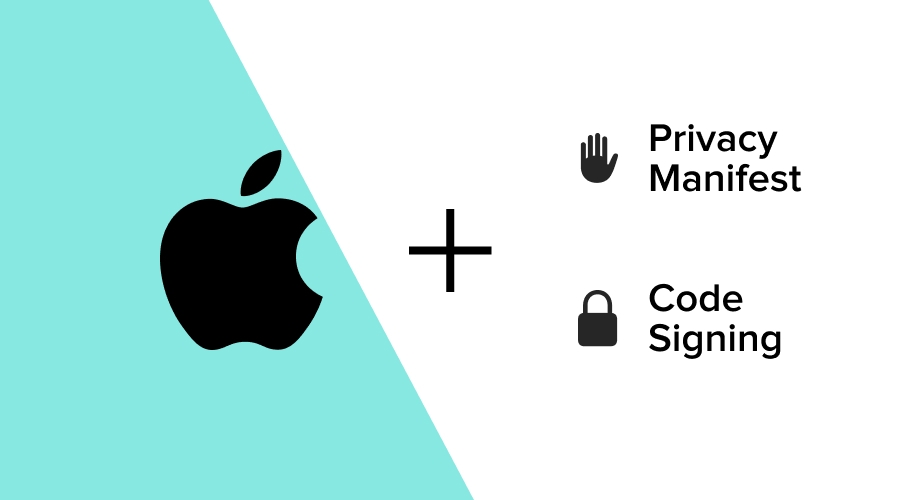iOS Privacy Manifest

Enhancing Privacy and Security in Mobile Apps: Apple's Latest Moves

In today's digital landscape, privacy concerns have taken center stage, prompting tech giants like Google and Apple to prioritize better privacy mechanisms for end-users. Currently, all eyes are on Apple, which has unveiled its new privacy manifest for mobile applications.
The Privacy Manifest: A New Era in Transparency
Traditionally, companies had to navigate a complex questionnaire in the App Store Connect, detailing the types of user data collected and how it's processed. However, this process has been far from straightforward. Developers often found it challenging to track data collection comprehensively, especially when integrating third-party libraries, which could collect information without their explicit knowledge.
Apple's privacy manifest introduces a game-changing solution—a configuration file, PrivacyInfo.plist, to be included in the app during development.
This file meticulously documents the data collected and its purposes, as well as any sensitive APIs utilized.
Crucially, this extends to third-party libraries, enabling developers to provide users with a comprehensive privacy summary via the App Store. This transparency empowers users to make informed decisions about their data.
After archiving your app for distribution, Xcode can generate a privacy report, enabling you to precisely analyze the final outcome.
The introduction of privacy manifests signifies a pivotal shift towards transparency and accountability in app development. At Notificare, we've embraced this initiative wholeheartedly. Our latest release, version 3.9.0, integrates privacy manifests for each module we provide, ensuring utmost transparency in data handling.
Strengthening Security with Code Signing
In tandem with its privacy efforts, Apple has introduced code signing for XCFrameworks to bolster app security. Previously, developers could integrate any XCFramework into their projects without verification, potentially exposing them to malicious frameworks during updates. Code signing addresses this vulnerability by introducing a certificate of authenticity within frameworks. Xcode verifies this signature, alerting developers to compromised frameworks and safeguarding against malicious actors.
Since implementing code signing in version 3.9.0 of the Notificare libraries, all XCFrameworks are now code-signed, enhancing the security posture of your app.
Looking Ahead
At Notificare, we are committed to delivering cutting-edge solutions while adhering to the highest standards of privacy and security. Embracing privacy manifests and code signing not only ensures compliance with Apple's regulations but also reinforces our dedication to providing users with a safe and transparent app experience.
It's worth noting that while Apple's privacy manifest marks a significant step forward, there are still areas for improvement.
Currently, Apple only processes the PrivacyInfo.plist of the application itself during App Store submissions, overlooking third-party libraries.
We remain hopeful that Apple will analyze the complete privacy manifest before enforcing mandatory declarations in the future, fostering a more robust privacy ecosystem for all.
In conclusion, Apple's initiatives underscore a collective commitment to safeguarding user privacy and fortifying app security. By embracing these advancements, developers can instill trust in their users while navigating the evolving landscape of digital privacy.
As always, we hope you liked this article, and if you have anything to add, we are available via our Support Channel.
